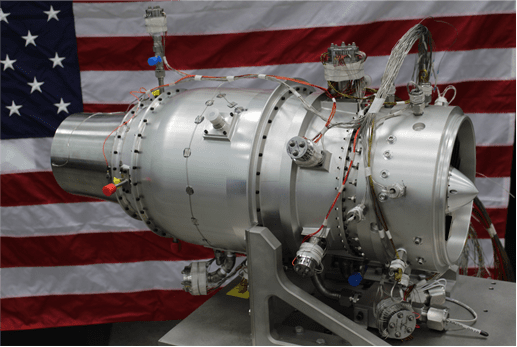Small, Medium Turbine Engines the Focus of Inclusive Working Group Assembled by WBI for AFRL
16.02.23 02:45 PM By Jennie Hempstead

By: Laura Dempsey
Wright Brothers Institute was engaged to facilitate the creation of a working group focused on small and medium turbine engines. Using its extensive roster of industry connections and capabilities in the world of turbine engines, WBI connected the Air Force Research Laboratory and the Air Force Life Cycle Management Center to several companies – big and small – actively engaged in small and medium turbine engines.
This working group, called the Small Medium Engine Working Group (SMEWG), will steer the long-term research needed for small and medium turbine engines. AFRL’s Aerospace Systems Directorate (AFRL/RQ) and AFRL’s Materials and Manufacturing Directorate (AFRL/RX) are actively working on ways to reduce the cost of these turbine engines through material breakthrough, manufacturing processes and engine redesign and testing. WBI secured an outside partner r to assist with preparation and prioritizing the program.
“WBI’s outside partner played a major role in organizing and facilitating a highly impactful technical interchange meeting that brought together industry and government stakeholders,” said Jason B. Wolf, AFRL/RX’s Program Manager for the Structural Systems Manufacturing Branch.
The team was provided with a charter, beginning agenda, and an initial invitee list that included government contacts from AFRL/RX, AFRL/RQ, AFLCMC and industry connections from Florida Turbines Technologies, Arctos, General Electric, Kratos, Lockheed Martin, Northrup Grumman, Pratt & Whitney, Rolls-Royce, and Williams International. All of these companies are interested in small and medium turbine engine development and will help to guide the research and development efforts for AFRL.
SMEWG’s charter was agreed to by all, becoming its official guide, remaining in effect until terminated by AFRL/RX. WBI positioned the SMEWG for future growth by facilitating future communications with new invitees that explains the charter, the importance of participation, and explains how to join the private Working Group under a secure version of the Air Force Teams collaboration environment. The Working Group will focus on increasing collaboration and identifying alignment opportunities between industry and Department of Defense manufacturing needs for small/medium engines.
“Working with WBI and its outside partner allowed an Engine Requirements Refresh Study to begin executing work rapidly. Critical connections were established with relevant stakeholders from across the engine manufacturing industry and key U.S. Air Force stakeholders within AFLCMC and AFRL,” said Mr. Wolf. “At the conclusion of the study, a solid foundation was in place that continues to be built upon with U.S. Air Force investment to meet critical propulsion capability needs.”
